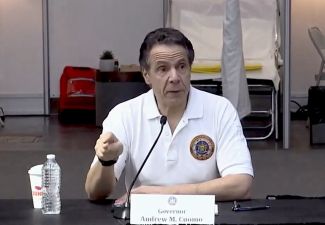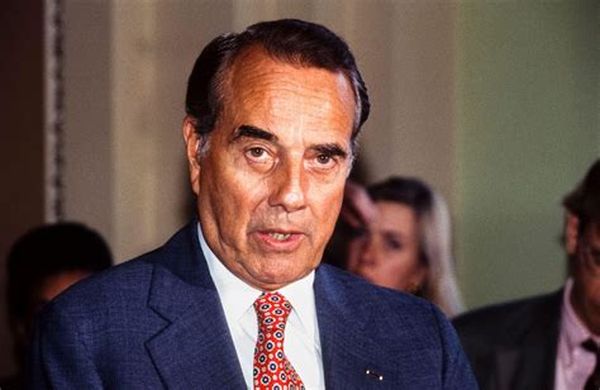Negative side effects
From The New CriterionHere’s how President Obama opened his three minute speech on the crisis in Ukraine, late on a Friday afternoon at the tail end of this year’s frigid February in Washington:
Over the last several days, the United States has been responding to events as they unfold in the Ukraine. Now, throughout this crisis, we have been very clear about one fundamental principle: the Ukrainian people deserve the opportunity to determine their own future. Together with our European allies, we have urged an end to the violence and encouraged Ukrainians to pursue a course in which they have stabilized their country, forge a broad-based government and move to elections this spring.
Odd, don’t you think? He puts up front not the Russian outrage (here just “events as they unfold”) but the fact that the US “has been responding” to it — as if people might not know there had been any response unless he assured them that there had been one. Then he proceeds to explain what it was: “we have been very clear about one fundamental principle.” Wait a minute. So by “responding” he means words? Just being “very clear” in his explanation to the Russians of why invading their neighbor was very, very wrong of them? Apparently so, since the response also includes urging (“together with our European allies”) “an end to violence” and encouraging Ukraine to hold new elections. Can it be possible that he thinks Vladimir Putin’s hand will be stayed from “violence” by a scolding from him and his allies — whose presence in the sentence weakens rather than strengthens the urging? Here, obviously, was a man who not only doesn’t know how to play the diplomatic game. He doesn’t even know he doesn’t know.
Not just the brevity, the time and circumstance and the tone of his remarks but the tiredness of the words themselves bespoke the President’s obvious impatience with having to say or do anything at all. That neither Russia nor anybody else really cared about his principles, clearly stated or not, was a matter of no apparent interest to him. Nor was the fact that there existed, though perhaps not in his tightly-circumscribed rhetorical world, responses that the Russians and others really might have cared about. True, he went on to warn the Russians that “the United States will stand with the international community in affirming that there will be costs for any military intervention in Ukraine,” but somehow I don’t see Mr Putin losing any sleep over a threat so vague, and on behalf of so indeterminate an adversary. In any case, the only “cost” Mr Obama saw fit to mention was yet another affirmation. He seemed to be relying rather too heavily on the efficacy of boring the Russians to death with being preached at.
It all suggested to me, not for the first time, a return to Carterism, or the belief that America’s role in the world is as a lecturer and would-be moral exemplar of diplomatic, military and, now, environmental rectitude to lesser nations — even though, for some unfathomable reason, the lesser nations are rarely grateful for their lessonings by us, or inclined to be guided by our moral example. Like his Secretary of State John Kerry, the President intended his administration’s top international priorities to be things like climate change, international terrorism and nuclear non-proliferation — things that he still hoped to affect through international cooperation. Accordingly, something like the invasion of Ukraine must have looked like an irrelevancy to him, an irritating throwback to the bad old days before hope and change wrought their benign transformation in the world.
That’s why, Mr Kerry, when interviewed on “Face the Nation” about Russia’s “incredible act of aggression,” found his credulity taxed. It was because, “You just don’t in the 21st century behave in 19th century fashion by invading another country on [a] completely trumped up pretext.” Well, you don’t. Other people, who haven’t got the memo about history’s changeover from 19th to 21st century international norms might still behave differently — “incredible” as that may seem to someone grown, as so many progressives have grown these days, accustomed to regarding “history” as a compliant imaginary friend. A wiser man than Mr Kerry might have taken the Russian démarche as a sign that “history” is not what he thought it was. He might even see one or two other signs that the 21st century is going to look a lot more like the 19th century, or even the 18th century than anyone might have supposed only a few years ago. My own darkest suspicion is that it is likely to be the 17th century, with its religious wars, that will provide the better model for our future.
Back in the third, or Bob Schieffer debate of the 2012 campaign — the one in which, as various commentators suddenly recalled, Mr Obama mocked the hapless Mitt Romney for having said that Russia was our number one geopolitical foe — the President also dealt as forcefully as he knew how with those who, like Mr Romney, would have questioned his leadership:
And they can look at my track record, whether it’s Iran sanctions, whether it’s dealing with counterterrorism, whether it’s supporting democracy, whether it’s supporting women’s rights, whether it’s supporting religious minorities, and they can say that the President of the United States and the United States of America have stood on the right side of history. And that kind of credibility is precisely why we have been able to show leadership on a wide range of issues facing the world right now.
Leadership to him means standing, rhetorically, at any rate, on the right side of history with democracy, women’s rights and (bizarrely) religious minorities. Tell that to the Christian minorities in Iraq, Syria and Egypt. It has little or nothing to do with forming or strengthening alliances or confronting enemies among nation states — which, in the progressive view, are pretty much obsolete in any case. It is an occasion for reaffirming rather than re-examining the progressives’ putative alliance with “history,” without which progressivism itself would be unimaginable. If history does not equal progress, then whither the progressives? Conversely, therefore, Russia is meant to be abashed by the news of history’s disfavor, which the President takes it upon himself to pronounce in no uncertain terms on history’s behalf. Here’s what he said the following Monday before a meeting with the Israeli prime minister, Benjamin Netanyahu: “And I think the strong condemnation that it’s received from countries around the world indicates the degree to which Russia’s on the wrong side of history on this.”
Do tell! A similar message, we may remember, was sent to the brutally oppressed Iranian protestors of the “Green Revolution” back in 2009. “After more than a week of being accused by Republicans and others of failing to live up to the American tradition of supporting pro- democracy movements,” the Guardian reported at the time,
Obama adopted much tougher language, going far beyond his previous expressions only of sympathy with the demonstrators. “The United States and the international community have been appalled and outraged by the threats, beatings, and imprisonments of the last few days. I strongly condemn these unjust actions, and I join with the American people in mourning each and every innocent life that is lost,” he said. He praised the women who had courageously took part in the demonstrations and “the searing image of a woman bleeding to death on the streets.” The demonstrators would in the end be seen to be “on the right side of history.”
I guess it must be the promise of support from “history” that puts this “much tougher language” so “far beyond his previous expressions only of sympathy with the demonstrators.” At any rate, it is all the more unfortunate that, five years later, history still shows no signs of coming through for them. Like freedom-loving Ukrainians, presumably, freedom-loving Iranians will just have to be patient until the quasi-deity of “history” can get around to their problems. For now it’s busy conferring upon Americans its latest gifts, which are the Affordable Care Act and gay marriage, both of which likewise claim the sanction of a benevolent “history” — like, perhaps, that of Mr Obama’s own “historic” presidency.
Of course, the best thing about being on the right side of history is that you don’t actually have to do anything. You don’t even have to threaten to do anything — which must be why no one in the administration apparently saw any connection between the announcement, only days before the Russians marched, between Mr Putin’s boldness and further cuts in the American armed forces. A ten per cent reduction in the Army’s manpower was added by Defense Secretary Chuck Hagel to the fifteen per cent cut already scheduled from its maximum strength under President George W. Bush. Likewise, Russian tanks were on the move within days of the announcement that the entire fleet of American A-10, “tank-killer” aircraft, was to be eliminated. As with the abandonment last year at the instance of Mr Putin of the President’s “red line” over Syrian use of weapons of mass destruction, the defense cut was just one more in a series of signals sent by the Obama administration. It was insisting, and would continue to insist, that “history” would henceforth have to get along without any help from America’s ever-decreasing military might.
And where did that affirmation come from? In my view it was from the political judgment made by Mr Obama back in 2007-2008, which has so far proved correct, that American public opinion is at present in an isolationist phase from which nothing short of an invasion of the homeland seems likely to jar it. As Dan Hodges blogged in the London Daily Telegraph about a similar mood in Britain at the time of the Syrian crisis: “It’s not just that we didn’t want to intervene in Syria. We don’t want to intervene anywhere. Afghanistan is now seen as a costly mistake. Iraq at best a catastrophe, at worst a war crime. Libya, to the extent anyone remembers or comments on that action at all, an eccentric aberration.” I take it that the “we” here means, primarily, the media, which created in Britain a political climate every bit as hostile and hate-filled toward Tony Blair as the American one was toward George W. Bush. Ironically, at least part of that hatred was on account of those leaders’ implicit invocation of their own version of the progressives’ historicism as justification for their efforts to bring democracy to the Islamic world.
In other words, those who were furiously demanding action from the President over the Russian invasion were rather missing the point. It was already too late by then for us to do anything really consequential — which is why Russia moved when it did. We had already announced our abdication from world leadership, which also means from American standards as they applied, in another splendid irony, to what another progressive American president was the first to call “the rights and liberties of small nations.” Nobody had ever thought that small nations as such had any rights before Woodrow Wilson announced, on April 2, 1917, that America was joining the Great War in Europe, in part, in order to defend them. Them and democracy, for which the world needed to be made safe, as it did again nearly 90 years later under President Bush. The rights of small nations were later spelled out in specific terms in the 14 Points under the basic principle of self-determination and of “equality among the peoples of the world.”
Here was the “fundamental principle” which Barack Obama was still boasting of having made “very clear” to the Russians. As Wilson put it, “an evident principle runs through the whole program I have outlined. It is the principle of justice to all peoples and nationalities and their right to live on equal terms of liberty and safety with one another, whether they be strong or weak.” It seems to me not too much to say that this was from the beginning a utopian project essentially to abolish the distinction between strong and weak, and with the ironic strength of America’s military as well as moral might as its guarantor. Of course, that never could last, but American strength for most of the subsequent century kept it in the forefront of principles that the rest of the world had at least to pretend to respect. Those days are over, as the Russian incursion into the Crimea makes clear, and to the great shock of John Kerry and other progressive historicists who failed to see the logic of their own policies as dictated by the need to placate the isolationist media.
I think that the virulence of hostility I mentioned in this space two months ago (see “Unhappy Anniversary” in The New Criterion of February, 2014) among historians, amateur and professional, against those who waged the 1914-18 war a century ago or those who defend it now must also owe something to this same media climate. The hatred and anger about events long past was really to energize the shift in politically correct historical models that the increasingly politically focused media left has approved for general use. Messrs. Bush and Blair had appealed to the same post-Munich revulsion against isolationism and appeasement that had kept the Cold War going, among a plurality of liberals and conservatives alike, for nearly half a century. Still in the same habit of mind, Hillary Clinton attempted to draw a historical analogy between Hitler’s pretext in the Sudeten Germans for dismembering Czechoslovakia — that which the Munich agreement had facilitated — and Mr Putin’s concern for ethnic Russians in Crimea as an excuse for a similar move against Ukraine. Her historical reasoning was not met with universal applause from those she might otherwise have supposed to be her natural allies. Suspicions about her covert neocon sympathies also had something to do with her primary loss to Barack Obama in 2008.
For now, at least, progressive internationalism has at last given way to the historical model preferred by the progressives’ historic opponents, the isolationists, and tough luck for the small nations — among which more than just Ukraine may now expect to enjoy at best a limited local autonomy under the defense umbrella of larger and stronger neighbors. Partisan passions are, I suppose, the inevitable accompaniment both of unavailing demands for more than token action on the right and an unhistorical appeal to “history” on the left. But they also give rise to the further irony that it is ultimately in the name of “history” that history itself is currently in the process of being deleted from our collective memory. The “common core” educational standards subsume it under history/social studies and subsume that under what used to be called English — but only that part of English which involves the critical reading and analysis of “texts.” There is no body of historical knowledge that the common core identifies as mandatory or even useful for secondary school pupils to know — perhaps because it seems more important to progressives to prepare them for the process of ratiocination by which relevant historical information may be expected to change with the political fashions of the moment.
Discover more from James Bowman
Subscribe to get the latest posts to your email.







